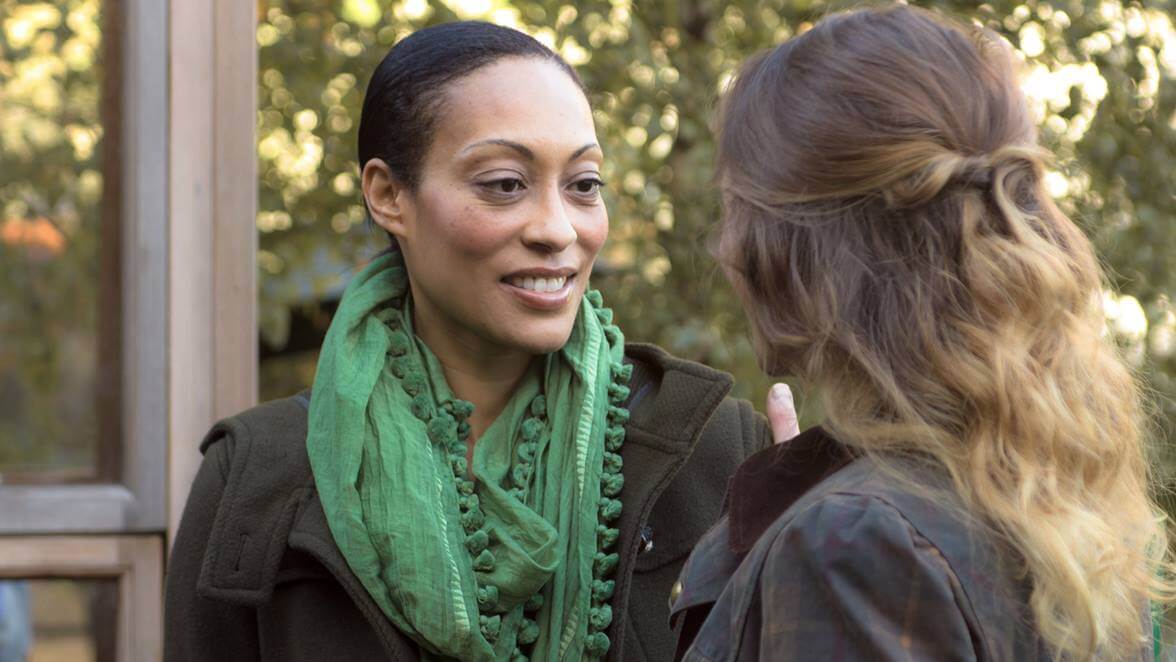The Most Powerful Thing You Can Say to Another Mom

Denise Stirk wrote a truly heartbreaking piece in which she shares her personal experience with this complex triggering situation: “What do you say to a mother who has lost a child?” A series of meaningful situations cause her to reflect, and it was through these that she discovered the most powerful thing you can say to another mom.
Below we share some thoughts on Denise’s case that touched the world; on this brave, empathetic and understanding mother who emerged from a whirlwind of emotions, not without expressing her emotional turmoil in her own heartfelt words.
How Can You Address Another Mom’s Pain?
In this case, the thoughtful and introspective heroine of this story tells of a tragic event. None other than the unexpected loss of her friend’s 21-month-old daughter, which without a doubt, represents irreparable grief and suffering for anyone who has experienced motherhood.

She decided to travel so she could be there for her friend in this difficult time. Faced with seeing this grieving mother, many questions began to arise. How can I find the right words to console her? How do I avoid saying the wrong thing?
In her search for the perfect words, she realized she could never truly relate with her sorrow. With two healthy children at home, she felt there was nothing she could say without having experienced this. Nevertheless, armed with biblical verses and stock phrases, she launched herself into consoling her friend.
Then, she found a million unexpected words that were extremely powerful and life altering. It was this strong mother who in a situation of pain said something that struck deeply in her heart. It was maybe the simplest thing that could be said.
While she describes everything she has had to go though together with her little angel as her worst nightmare, she told her, grief-stricken and with tears streaming down her cheeks: “You’re a mom.” This sentence took her breath away and illustrated the magnitude of her loss and the level of her pain.
The secret to addressing another mother’s pain is found in the simplest and most meaningful bond: motherhood. Because while everyone may not have experienced the suffering of the loss of a child, they do share the joy of having had one.
Understanding Another Mom
This was a starting point that helped Denise understand the hell that this other mother was living in. Certainly losing a child is something every mother fears. The simplicity and impact of this fundamental truth connected her with other mothers.
The way that we choose to raise and educate our children has no importance here. We all have one thing in common: our heart’s connection with our children. This is what also brought her together with her mother, who was recently diagnosed with breast cancer.
And in the waiting room for her treatment, Denise observed a mother of a three-year-old. He shone proudly, with his colorful Superman cape and hospital mask. The mother, cradling him in her arms, whispered something to him. She felt his blood turn cold and his heart stop. Denise suffered for this other mom.
With an ocean of tears falling from her eyes, she remembered what her friend had said: “You’re a mom.” This is something that also came mind later, when a restaurant employee struggled to find childcare. She noticed her anger and worry; one more blow to the heart in this chain of events that were not coincidental but causal.
Finally she could appreciate how a mother could travel on foot for four and a half hours. She impatiently checked her watch and kissed her baby’s bald head. Anything to avoid crying and comfort the child. She knew she was worn out and frustrated, simply because she is a mother.
“You’re a Mother,” So Powerful for Another Mom

Motherhood is a thread that connects us all. All types of mothers: rich or poor, those whose children are sick or healthy, those who breastfeed or use formula. All are united by the same feeling: a mad love, that paralyzes our hearts.
And this last fact can lead to pain. That is why sappy commercials can so easily provoke tears in mothers. This is also why they may cry when dropping their kids off at school for the first time. This is why any ailment, no matter how small, terrifies them.
This is why their hearts ache at perinatal loss or infertility. This is why they dread the idea of a child leaving the nest. And this is the reason that the death of another mother’s child can be heartbreaking. So, naturally we want to comfort mothers when they are facing a difficult time.
Just hug them and don’t struggle to find the right or appropriate words; because without a doubt, the most powerful thing you can say to another mother is: “I understand. I am a mother too.”
This text is provided for informational purposes only and does not replace consultation with a professional. If in doubt, consult your specialist.
